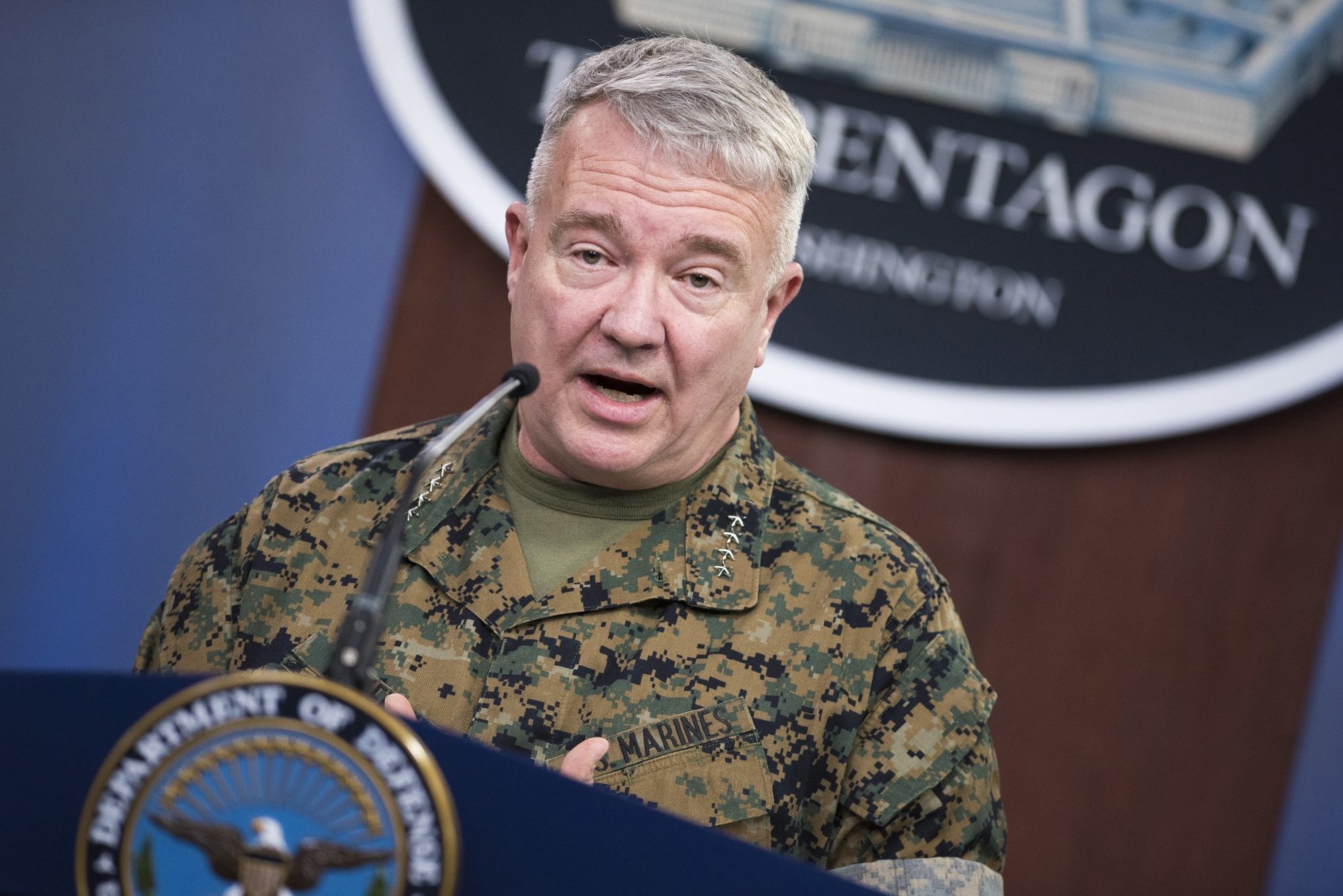US General Raises Concern About Afghan Forces After Troop Pullout

The commander of U.S. Central Command, Marine Corps Gen. Kenneth F. McKenzie Jr., briefs reporters on the status of operations in the CENTCOM area of responsibility, at the Pentagon, Washington, D.C., March 13, 2020. (DoD photo by Lisa Ferdinando)
This article was originally published April 22, 2021, by Radio Free Europe/Radio Liberty.
A top U.S. general has expressed concern about the ability of the Afghan security forces to hold territory after the planned withdrawal of all foreign troops from the country later this year.
“My concern is the ability of the Afghan military to hold the ground that they’re on now without the support that they’ve been used to for many years,” Marine General Kenneth McKenzie, the head of U.S. Central Command, told a Senate Armed Services Committee hearing on April 22.
“It’s intelligence, it’s fire support, it’s the enabling things that actually give them an edge over the Taliban. And all that will be gone,” McKenzie added.
President Joe Biden announced last week that the United States would withdraw its remaining 2,500 troops from Afghanistan by September 11, the 20th anniversary of the Al-Qaeda terrorist attacks that triggered America’s longest war.
NATO has said it would follow the same timetable for withdrawing more than 7,000 allied personnel.
When Biden announced the withdrawal plan, which breaks a May 1 deadline for the pullout laid out in a U.S.-Taliban deal reached in February 2020, he said the United States would reorganize counterterrorism capabilities and keep substantial assets in the region to respond to any threats emerging from Afghanistan.
The Pentagon has said it was looking to fund key Afghan military capabilities such as the air force, and seeking to continue paying wages of Afghan security forces.
But U.S. officials have questioned questioned whether the security forces would be able to hold back the Taliban militants, which McKenzie said number 50,000, while U.S. military leaders have consistently argued for a drawdown based on security conditions in Afghanistan.
“I am concerned about the ability of the Afghan military to hold on after we leave, the ability of the Afghan Air Force to fly, in particular, after we remove the support for those aircraft,” McKenzie said in his testimony to the Senate panel.
“It is a matter of great concern to me whether or not the future government of Afghanistan will be able” to protect the U.S. Embassy in Kabul “once we leave,” the general also said.
Copyright (c)2021 RFE/RL, Inc. Reprinted with the permission of Radio Free Europe/Radio Liberty, 1201 Connecticut Ave NW, Ste 400, Washington DC 20036.

Coffee or Die is Black Rifle Coffee Company’s online lifestyle magazine. Launched in June 2018, the magazine covers a variety of topics that generally focus on the people, places, or things that are interesting, entertaining, or informative to America’s coffee drinkers — often going to dangerous or austere locations to report those stories.
BRCC and Bad Moon Print Press team up for an exclusive, limited-edition T-shirt design!
BRCC partners with Team Room Design for an exclusive T-shirt release!
Thirty Seconds Out has partnered with BRCC for an exclusive shirt design invoking the God of Winter.
Lucas O'Hara of Grizzly Forge has teamed up with BRCC for a badass, exclusive Shirt Club T-shirt design featuring his most popular knife and tiomahawk.
Coffee or Die sits down with one of the graphic designers behind Black Rifle Coffee's signature look and vibe.
Biden will award the Medal of Honor to a Vietnam War Army helicopter pilot who risked his life to save a reconnaissance team from almost certain death.
Ever wonder how much Jack Mandaville would f*ck sh*t up if he went back in time? The American Revolution didn't even see him coming.
A nearly 200-year-old West Point time capsule that at first appeared to yield little more than dust contains hidden treasure, the US Military Academy said.












